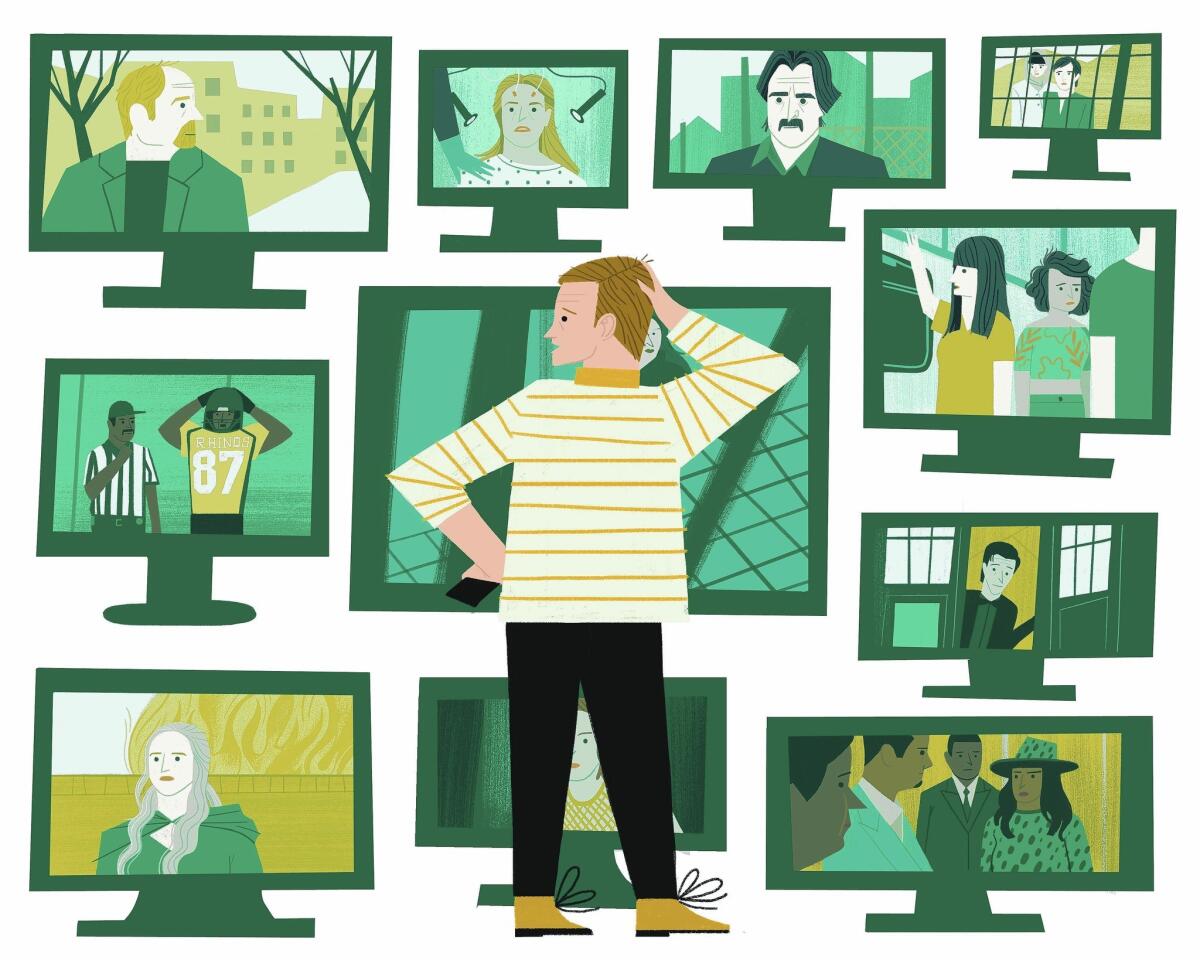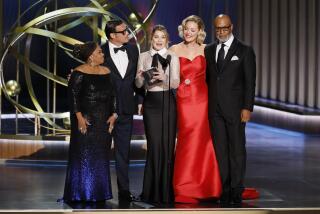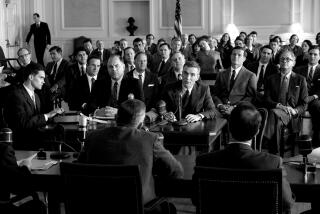Letters to Calendar: Let’s talk Jackie Chan and Emily Ratajkowski

A ‘blessing and a curse’
TV viewers, especially families, are confused about deciding what to watch [“The Angst of TV,” Aug. 23]. It’s a big change from the first years of TV programming, when an early TV critic, Newton Minow, called TV “A vast wasteland.” With TV still showing test patterns then, with only a few good shows such as Milton Berle’s, the remark had a point.
Today, we have the opposite extreme — “TV Cluster-Phobia.” It all really began on radio, with the daily “soap operas” on the three main broadcast stations. Many programs today are essentially forms of soap operas, with continuing characters facing twists and turns and new periodic challenges to keep the viewer watching every week with the human instinct of not wanting to miss anything. It may bring to mind what the TV detective character, Monk, said sometimes about his own pet peeves within the plots of his shows: “It’s a blessing, and a curse.”
Sam McCarver
San Juan Capistrano
Jackie Chan free to stay home
Re “Caught Between East and West” [Aug. 30]: Jackie Chan, who disses his own fellow Chinese when he famously declared, “We Chinese need to be controlled. If we’re not being controlled, we’ll just do what we want,” deserves no respect. He further declared that “I’m not sure if it’s good to have freedom or not.”
Well, Jackie Chan should just stay in a one-party dictatorship in China where he can certainly participate in controlling his fellow Chinese.
Ann Lau
Torrance
A misogynistic and sexist video
Re the Sunday Conversation with actress Emily Ratajkowski [Aug. 30], the “Blurred Lines” video was “not overly sexualized”? Nice try. There was nothing remotely related to female confidence, nor was it refreshing to see nude young women dancing with dressed-up men. It was exactly what she said about reading it on paper, sexist and misogynistic and yes, it will follow her around for a very long time. What did she expect from dancing nude in a video with two of the most visible male music stars on the planet?
In the far away past, things were really sexy, when that amount of public nudity was a rare occurrence.
Not a prude,
Lynn Leatart
Sherman Oaks
McCallum had rock-star status
Illustrated but not mentioned in your article on David McCallum [“The Grandfather From ‘U.N.C.L.E,‘” Aug. 9] is something easily overlooked and hard to imagine now. Compared to all the other leading men on television in the mid-’60s, McCallum was exceptional because of what was then a big deal: He had long hair!
While his “Man From U.N.C.L.E.” co-star Robert Vaughn sported the suave, slicked-down Brylcreem look, McCallum’s shaggy mop was more in step with the changing times, and all the kids at my school thought Illya Kuryakin was the coolest of all the TV spies. It’s a moment now forgotten in popular culture, but from his hosting of “The Big TNT Show” music film to the anecdote cited about the mob of fans he attracted to Macy’s, McCallum was practically considered a rock star.
Fred Janssen
Long Beach
There’s no license to fake it
Re “Paul Weitz Takes on Taboos and a Punk Rock Lily Tomlin in ‘Grandma‘” [Aug. 21]: There’s an interesting view from the street. The car parked ahead of Lily Tomlin and Julia Garner is more than likely a mid-1950s Chevrolet, but the California license plate is not. It is a repaint where someone substituted black for the original blue, as the plate was originally yellow on blue.
Many people think others will be fooled, but the transition to “three numbers and three letters” started in fall 1969 and lasted until about 1980. The plate “528 GPR” is from early 1975. “Yellow on black” plates have three letters, then three numbers.
Jeff Draugelis
Anaheim
More to Read
The biggest entertainment stories
Get our big stories about Hollywood, film, television, music, arts, culture and more right in your inbox as soon as they publish.
You may occasionally receive promotional content from the Los Angeles Times.










